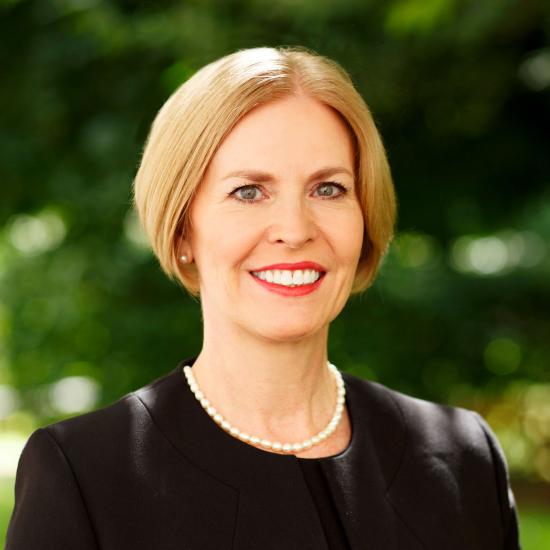Christina, when you say “give them the development”, are you envisaging a formal leadership development programme or is it merely identifying those with the leadership potential and encouraging them to take up roles that allow the development of those leadership skills “by doing”?
I’d say certainly the former. And I think that feeds into the diversity point: we need the diversity of thought and diversity of skill set as well, because I think our vision of a leader has been fairly uniform and again, I don’t think that that necessarily works. It works in what was a hierarchical pyramidical structure but actually if we are disaggregating legal businesses more and we’re going to have more diversity in terms of the roles and in terms of the way that people work then you need more diversity in terms of the leadership.
By that, I mean not just the diversity that we think of as evident, protected characteristics, but also the type of people that we are looking at to be leaders. So I think we should be moving away from that very monochrome, uniform approach to building a leader and towards seeing the potential in people and developing that.
And of course that feeds into more general issues around diversity and inclusion. Also I think it goes hand in hand with innovation, because what we’re talking about here is an environment in which people can be themselves, so that you’re actually bringing your whole self to work, being creative and doing that in a much more dynamic, fluid environment: all of which is very challenging for law firms. We’re not known for any of those characteristics. But that’s where we’ll get to keep the millennials and the Gen Z because they’ll think; “Yes, this is a really exciting, interesting, innovative place to be and I see that I’m valued”.
Already as a profession we are pretty much representative of the general population – but if you look at young people studying law at universities, about 40% BAME, and about two thirds are female. So if that is our talent pool and we are not creating an environment which is going to be supportive and attractive to those people, then we are fishing in a very very small pond.
I was just thinking that some of the aspects that you outlined about what it is that millennials value - so interest, meaning, flexibility and change in their jobs. It seems to me that that the development of those characteristics is in itself a key part of innovation for the future. There’s a lot of enablers that sit around that including technology but a lot of this is actually about cultural change.
Yes, fundamentally it is.
And that in turn requires significant leadership capability of those currently in leadership positions.
I think that it requires us to think differently about leadership and in particular less hierarchically about leadership. If law firms are going to succeed in making culture change then they need to empower new leaders as well. And, slightly tangentially, we need to start rewarding things differently because we’re never going to get change, particularly at middle ranking levels, unless you reward those behaviours. That’s another whole big question about what we value and how we reward it. But without facing those questions and making those changes, it’s very difficult to effect any significant cultural change and particularly over the time frames that this needs to be completed. So law firms will have to be radical and will have to, as I say, turn themselves upside down, in effect.
For example, reverse mentoring is something that we very much promote in our diversity and inclusion space because it is one way for the leaders to hear what it is actually like from the ground up. The higher up you get, the more remote you are from that; that’s the genuine reality.
How does the profession make diversity in all its dimensions simply part of “Business as usual”?
I would say it should be absolutely mainstream - part of everything that we do. And to get that cultural shift, you often need to have fairly consistent reminders of that. One of the things that we’ve learnt from the 200 women’s round tables that have formed part of our women in leadership in law programme, is that a very good way of ensuring that firms do create diverse and inclusive workforces (because inclusion is really important as well) is to ensure that there are things like just-in-time training so that, for example, if you’re about to go into a recruitment process, it’s at that point that you revisit the training to raise your awareness again. You need that, and also to have systemic checks and balances in place. There are things that can be done to ensure that we have both cultural change and then cultural consistency to ensure that diversity is 'business as usual'.



